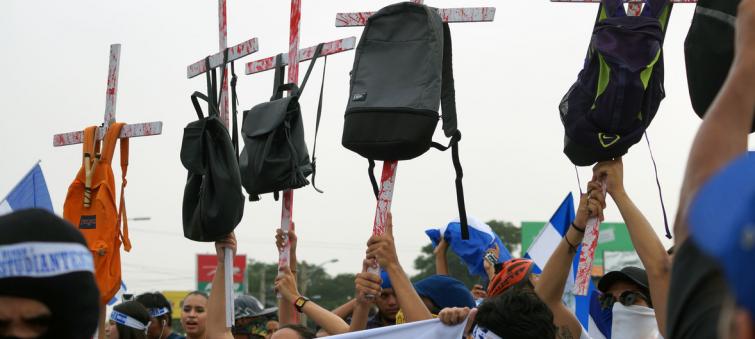
Nicaragua: UN rights chief ‘deeply concerned’ over increasing criminalization of dissenters
New York, Feb 23 (IBNS): While the Nicaraguan Government claims to want to resolve its political and social unrest, dissenters continue to be arrested and convicted, clearly hindering a conducive environment for “genuine and inclusive dialogue,” the United Nations rights chief said on Friday.
“I am deeply concerned about the apparent lack of due process and increasing criminalization of dissent in Nicaragua,” UN High Commissioner for Human Rights Michelle Bachelet said on Friday.
She warned that the arrest and jailing of opposition leaders, in some cases as a reprisal for cooperating with the UN to highlight human rights abuses, “clearly hinders the creation of an environment conducive to holding a genuine and inclusive dialogue – which the Government says it wants.
Over the last six months, a diverse section of several hundred people has been arrested and held in pre-trial detention for long periods for their alleged roles during protests that took place last year between April and July.
Amid rising concerns over the judiciary’s independence, since December, various criminal courts in Managua have handed down guilty verdicts and extremely heavy sentences to prominent opposition and community leaders.
Students, journalists, and a Supreme Court judge, among other dissenting voices, have fled the country.
The proceedings in many of the cases have been marred by a lack of transparency; witnesses independence and credibility; undue restrictions on evidence and witnesses for the defense; and defendants’ insufficient access to their lawyers.
“There needs to be an independent review of the convictions and sentences imposed on opposition leaders and activists who took part in the protests to ensure that their cases were properly handled at every stage by the police, prosecutors and judges,” stressed Bachelet.
She called on the authorities to “release all those deprived of their liberty in connection with their intrinsic right to peaceful protest and dissent,” and to ensure that those “who cooperate with the UN and other human rights organizations do not face reprisals."
“It is a fundamental tenet of democracy that people from all parts of society should be able to engage freely in debate about the future of their country, without fear of arrest or intimidation,” concluded the UN human rights chief.
Image Credit: OHCHR Regional Office for Centra
Support Our Journalism
We cannot do without you.. your contribution supports unbiased journalism
IBNS is not driven by any ism- not wokeism, not racism, not skewed secularism, not hyper right-wing or left liberal ideals, nor by any hardline religious beliefs or hyper nationalism. We want to serve you good old objective news, as they are. We do not judge or preach. We let people decide for themselves. We only try to present factual and well-sourced news.







